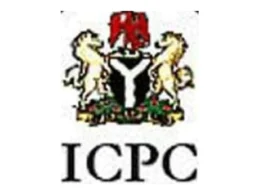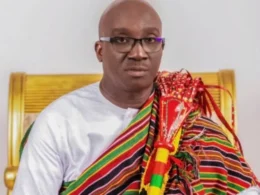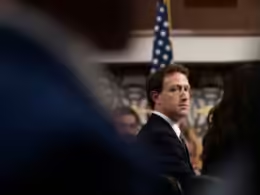The Senate has postponed the highly anticipated public hearing on alleged economic sabotage within Nigeria’s petroleum industry, originally scheduled for September 10 to 12, 2024. The decision to delay the hearing was announced by Senator Opeyemi Bamidele, Chairman of the Senate Ad-hoc Committee tasked with investigating these issues. The postponement aims to allow for broader consultations with key stakeholders whose participation is crucial to ensuring the success of the investigation.
Senator Bamidele, in a statement on Sunday, explained that the committee’s objective is to conduct a thorough investigation, which necessitates input from both public and private stakeholders in the petroleum industry. The postponement, he noted, would provide more time for in-depth discussions with stakeholders whose insights could contribute to reaching a conclusive resolution.
Among the critical stakeholders summoned for the hearing were high-profile entities, including:
- Senator Heineken Lokpobiri, Minister of State for Petroleum Resources (Oil)
- Officials from the Nigerian National Petroleum Company Limited (NNPCL)
- The Central Bank of Nigeria (CBN)
- Nigeria Ports Authority (NPA)
- Nigerian Midstream and Downstream Petroleum Regulatory Authority
- Nigerian Upstream Petroleum Regulatory Commission
- Nigeria Customs Service
- Nigerian Navy
- International Oil Companies
- Dangote Group
- Capital Oil
- Modular refineries
These organizations were expected to provide crucial information about the challenges facing the sector, including the billions of dollars spent on refinery maintenance, regulatory agencies’ overpayment to transporters, and allegations of substandard diesel imports.
The Senate ad-hoc committee was established in July 2024 to probe these long-standing issues, following complaints of economic sabotage that have harmed the petroleum industry. Pre-investigation sessions with key government ministries, departments, and agencies, as well as private sector representatives, were already conducted.
However, after consulting with committee members and industry leaders, Senator Bamidele highlighted “legislative exigencies” as another reason for the postponement, noting that it was essential to ensure thorough due diligence in the hearing process. Bamidele emphasized that the decision to reschedule was “purely and solely in the national interest,” as the committee seeks to adopt a holistic approach to tackling the challenges plaguing Nigeria’s petroleum sector.
In his statement, Bamidele expressed regret for any inconvenience caused to stakeholders and assured them that a new date for the public hearing would be announced in due course.
The Senate committee is expected to shine a spotlight on key issues affecting Nigeria’s petroleum industry, including the significant funds allocated to refinery turnaround maintenance, allegations of economic sabotage, and the illegal importation of low-quality petroleum products. The postponement, according to Bamidele, is intended to create an environment where all stakeholders can meaningfully contribute to finding solutions that would improve the industry and the Nigerian economy as a whole.
In a related development, the Nigeria Labour Congress (NLC) in Kwara State has called on the Federal Government to reverse the recent hike in petrol prices, which saw prices soar to between ₦1,000 and ₦1,200 per liter. The NLC expressed frustration, calling the price hike a breach of agreements made with organized labor, which had accepted the new minimum wage of ₦70,000 on the condition that fuel prices would remain stable.
The union’s chairman, Muritala Olayinka, criticized the government for its insensitivity at a time when citizens were grappling with economic hardships. Olayinka called the fuel price hike an “assault on workers’ well-being” and urged the government to review its economic policies to make them more labor-friendly and pro-people.
The fuel price increase has worsened the socio-economic conditions for many Nigerians, particularly in states like Kwara, where fuel is now sold at significantly higher prices. The NLC chairman called for calm among citizens, assuring them that the union is working to address the situation with the government. He also emphasized the need for national debate on the issue, urging the government to provide relief for the masses during this difficult period.
Olayinka concluded by reaffirming the NLC’s commitment to working with all stakeholders to alleviate the plight of Nigerian workers and citizens, promising to engage the government in meaningful dialogue to reverse the price hike and introduce more people-friendly economic policies.
The Senate and the NLC’s actions highlight the urgent need for reforms and interventions in both the petroleum sector and broader economic policies, as Nigeria continues to grapple with significant challenges affecting its people and industries.









